
THE VOICE OF INTERNATIONAL LITHUANIA
|
VilNews has its own Google archive! Type a word in the above search box to find any article.
You can also follow us on Facebook. We have two different pages. Click to open and join.
|
Front page
- Posted by - (0) Comment
My great grandfather came home
from Siberia in a suitcase

The farm where my wife’s great-grandfather lived
before the deportation to Siberia.
By Aage Myhre, Editor-in-Chief
Egle, my wife, comes into my study here in Vilnius as I am preparing the articles about the deportations to Siberia. "You should tell the story of my great-grandfather," she says. Because she, like almost all other families in Lithuania had relatives who were sent to Siberia. Many never returned, as was the case with her great-grandfather.
- Bookmark :
- Digg
- del.icio.us
- Stumbleupon
- Redit it
- Posted by - (0) Comment
Where are the kids
places in Vilnius?
By Gene Emmer
Any parent living in Vilnius, particularly near the center understands one of the biggest problems living in the city. What to do with the kids in the winter?
Yes, there are a few children's gyms at the big shopping malls. But except for that, when the snow comes and the sun leaves, there is very little for kids to do in the center of the city. Why is Vilnius so children-unfriendly?
When our son was an infant, we struggled to find restaurants with baby high chairs. Very few bother to have them. Changing tables in the toilets? Forget it. This is standard in many parts of the world yet practically non-existent in Vilnius. I would have to take a towel with me and put him in the sink to change his diapers. As he grew up, we struggled to find places where we were comfortable if he cried. Now that he is a bit older, we struggle to find restaurants with kid friendly menus offering foods such as pizza, French fries, sausages, etc. The only central restaurant we are aware of that offers a kid playing area and changing tables is Kibininn http://pinavija.lt/
In other countries children friendly restaurants are big business. Chuck E Cheese (http://www.chuckecheese.com/) is a popular international Pizza and Entertainment chain, with over 500 locations. On their website they write “Chuck E. Cheese’s is the ultimate place Where A Kid Can Be A Kid®. And parents can enjoy every moment.” Chuck E Cheese has an amusement park-like atmosphere with food, drinks, games, singing robotic animals and fun, fun, fun.
- Bookmark :
- Digg
- del.icio.us
- Stumbleupon
- Redit it
- Posted by - (0) Comment
|
PENNSYLVANIA-LITHUANIA Read below her story about Kaunas. |
 Hordes of Lithuanians came to Pennsylvania to work in coal mines in the late 1800s Hordes of Lithuanians came to Pennsylvania to work in coal mines in the late 1800s |
 The Pennsylvanian “Knights of Lithuania” keep on fighting The Pennsylvanian “Knights of Lithuania” keep on fighting |
 Movie Star Charles Bronson (1921-2003) Movie Star Charles Bronson (1921-2003)Son of a Lithuanian coal miner from Pennsylvania |
Kaunas seen through
Pennsylvanian glasses
By: Carol A. Luschas, Kutztown, Pennsylvania
Lithuania is a remarkable country with a fascinating history! It is located in the geographical center of Europe. One can discover buildings from the Gothic, Renaissance, Baroque, Classical, and Art Nouveau periods. There are unique museums, enchanting castles, specialty shops, quality restaurants, and affordable accommodations. The Lithuanian landscape is dotted with picturesque lakes, small rolling hills, and thick lush forests.
I decided to embark on a trip to Lithuania to visit my boyfriend, Mindaugas, and his mother, Irena. I spent the majority of my time in Kaunas, the second largest city in Lithuania…
- Bookmark :
- Digg
- del.icio.us
- Stumbleupon
- Redit it
- Posted by - (0) Comment
Eastern Europe's
watchdog in the U.S.
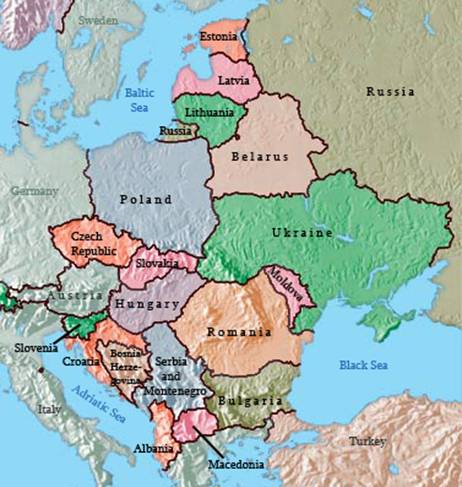
A constantly relevant focus of CEEC is Russia's increased use of
"soft power" against Lithuania and the other 17 countries that
constitute Central and Eastern Europe.
Member of our VilNews Honorary Council and regular contributor as a columnist, Dr. Stan Backaitis, is also a member of the Central and East European Coalition (CEEC), Eastern Europe's watchdog in the United States. A constantly relevant focus of this organization is Russia's increased use of "soft power" against Lithuania and the other 17 countries that constitute CEE. Dr. Backaitis today has made us aware of a new U.S. law in the country's relations with Russia. The new law grants Russia and Moldova permanent normal trade relations, but it is coupled with the Sergei Magnitsky Rule of Law Accountability Act, which honors a dead Russian. The law blacklists Russians connected to the death of Magnitsky in police custody and to other gross human rights violations, prohibiting entrance to the United States and use of its banking system.
See also:
Russia can turn the lights out on Lithuania any time it pleases
- Bookmark :
- Digg
- del.icio.us
- Stumbleupon
- Redit it
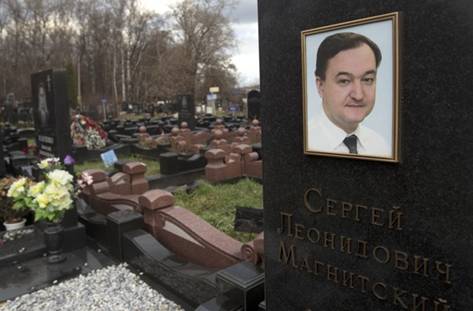
A tombstone on the grave of lawyer Sergei Magnitsky, who died in jail, at a cemetery in Moscow. A new law blacklists Russians connected to the death
of Magnitsky in police custody.
The Washington Post
MOSCOW — The U.S. Senate on Thursday repealed a trade sanction imposed 38 years ago to force the Soviet Union to allow Jews and other religious minorities to emigrate, replacing it with a modern-day punishment for human rights abuse that has enraged Russian officials.
The old law, one of the last vestiges of the Cold War, was called the Jackson-Vanik Amendment, named after a U.S. senator and a representative. The new law, passed 92 to 4, grants Russia and Moldova permanent normal trade relations, but it is coupled with the Sergei Magnitsky Rule of Law Accountability Act, which honors a dead Russian. The law blacklists Russians connected to the death of Magnitsky in police custody and to other gross human rights violations, prohibiting entrance to the United States and use of its banking system.
“Today, we close a chapter in U.S. history,” Sen. Benjamin L. Cardin (D-Md.), one of the prime movers of the Magnitsky bill, said during the debate on Jackson-Vanik. “It served its purpose. Today, we open a new chapter in U.S. leadership for human rights.”
How the United States can best promote democracy and human rights in Russia — and elsewhere — became a matter of agonizing and often bitter debate as pressure grew to repeal Jackson-Vanik. Not only was it widely considered a relic with the dissolution of the Soviet Union in 1991 and freedom to emigrate from Russia, but, under the regulations of the World Trade Organization, which Russia joined this year, it also penalized American exporters.
- Bookmark :
- Digg
- del.icio.us
- Stumbleupon
- Redit it
- Posted by - (0) Comment
- Bookmark :
- Digg
- del.icio.us
- Stumbleupon
- Redit it
- Posted by - (0) Comment
VilNews has earlier written about the extraordinary Italian – Lithuanian relationship since 1323, mentioning that Vilnius over centuries was known as ‘The world’s most Italian city outside Italy’ and ‘Europe’s most Baroque city north of the Alps’. Today we tell a contemporary Italian-Lithuanian story, penned by Erica (30) from Bologna in northern Italy. You can also find her story in Italian, at her blog https://mybaltics.wordpress.com/
|
|
Amazing Italian influence |
|
|
Searching for the Holy Grail? Come to Vilnius! |
|
|
Santa Claus and Lithuania’s Grand Duchess buried in same South-Italian basilica |
Erica’s Lithuanian story:
In 2009 I spent the spring time in Lithuania. I fell in love with this country, and here is why.
My name is Erica, I am 30 and I write from Italy. Three years ago I got the chance to be selected within the European program “Marco Polo” [1] for an internship as translator at Via Hansa Vilnius UAB [2], a major tour operator.
For my first real European experience I was confronted with a world which I honestly barely knew. So I left with two huge suitcases and a very superficial knowledge of Lithuanian language and culture with 15 fellows flying to Vilnius, which that year happened to be the “European Capital of Culture” [3], a lucky and appreciated coincidence.
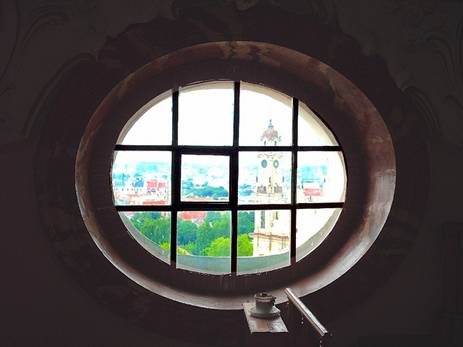
Vilnius through an Italian camera lens
Photo: Erica from Bologna, northern Italy
- Bookmark :
- Digg
- del.icio.us
- Stumbleupon
- Redit it
- Posted by - (0) Comment
|
|
24 NOV – 26 DEC 2012 |
|
|
Kaunas, Lithuania's second largest city and former capital, is receiving much attention in VilNews now as 2012 is coming to an end. We focus on history, business, culture, innovation, tourism and more. We would also like to hear from you who have your personal Kaunas story to tell... Send us your Kaunas story! |
||
|
Advent in Kaunas
Why not visit Kaunas this advent? Let’s give you some good reasons. |
||
Kaunas – the taste
|
- Bookmark :
- Digg
- del.icio.us
- Stumbleupon
- Redit it
- Posted by - (0) Comment
|
|
Kaunas Castle |
|
|
Town Hall
|
|
|
Arch-Cathedral Basilica
|
|
|
Vilnius Street
|
|
|
Historical Presidential Palace
|
|
|
Musical Theatre
|
|
|
St. Michael the Archangel Church (Sobor)
|
|
|
Pažaislis Monastery
|
|
|
Kaunas Funiculars |
|
|
Kaunas Monumental Christ’s Resurrection Church |
|
|
House of Perkūnas |
- Bookmark :
- Digg
- del.icio.us
- Stumbleupon
- Redit it
- Posted by - (0) Comment
|
|
24 NOV – 26 DEC 2012 |
|
|
Kaunas, Lithuania's second largest city and former capital, is receiving much attention in VilNews now as 2012 is coming to an end. We focus on history, business, culture, innovation, tourism and more. We would also like to hear from you who have your personal Kaunas story to tell... Send us your Kaunas story!
|
||
|
Thinking of business?
|
||
- Bookmark :
- Digg
- del.icio.us
- Stumbleupon
- Redit it
- Posted by - (0) Comment
Kitron to invest in Kaunas
instead of China, Norway
One of the leading electronics manufacturing services suppliers in Scandinavia – Kitron – will expand its manufacturing facility in Lithuanian city Kaunas, and invest almost six million euros into this project, the Invest in Lithuania reports now in November.
The expansion strategy of the Norwegian company in Lithuania encompasses an increase in its production capacity, the creation of 60 new job openings and an improvement to the company's revenue by 40%, writes LETA/ELTA.
In Kaunas, Kitron already produces electronic control systems for high-speed rail vehicles and electric grass mowers, electronic circuits for ultrasound devices, scientific equipment for seabed research, mobile blood test devices, smart grid/automatic meter reading systems and other electronic equipment.
"To win this expansion project, Lithuania competed with the US, Norway and China, all of which are well-known to Norwegian investors as countries where they have already established manufacturing facilities. Our country [Lithuania] was chosen because of its convenient location for logistics, the low costs of labor, and the resources to ensure production quality. Since the Norwegian company also supplies its goods to the defense and medical equipment industries, qualitative criteria were important to the decision on location," said the Managing Director of Kitron Lithuania, Mindaugas Sestokas.
- Bookmark :
- Digg
- del.icio.us
- Stumbleupon
- Redit it
- Posted by - (0) Comment
Kaunas FEZ – the ideal
place for new business
Kaunas FEZ (Free Economic Zone) is a 534 ha industrial development area which offers tax incentives.
Key advantages include:
· Considerable tax incentives;
· Excellent geographic location, coupled with high quality road and railroad connections;
· Adjacent to Kaunas Airport (at present 17 flight directions to the Western European Countries) ;
· Close to ice-free Klaipeda Seaport;
· Stable and constantly growing Lithuanian economy;
· Highly skilled and inexpensive workforce;
· Well developed infrastructure;
· Inconsiderable cultural and linguistic barrier;
· Good investment climate;
· Safety of business in the FEZ.
Watch presentation of the Kaunas FEZ:
http://www.ftz.lt/index.php/presentation/183?vid=60
For more information, see: www.ftz.lt
- Bookmark :
- Digg
- del.icio.us
- Stumbleupon
- Redit it
- Posted by - (0) Comment
Electric cars made
in Lithuania!
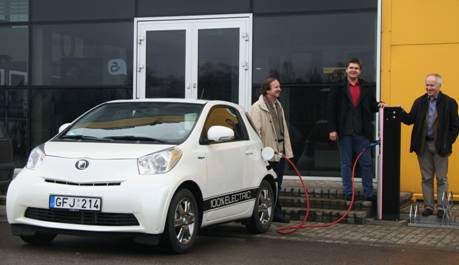
Kaunas electronics manufacturer ELINTA has come a long way in developing a new electric car here in Kaunas. These three gentlemen
are behind the success: Dr. Vytautas Jokužis, Laurynas Jokužis
and Dr. Vladas Lašas.
Elinta is a company that combines electronic with intellect. The company was established in 1991, as a research and production firm. From the start the company’s main hall mark was A highly skilled team, high quality goods and services. The business strategy, based on designing high-tech and consumer-friendly automated control systems, allowed the company to develop fast and surpass its competitors.
- Bookmark :
- Digg
- del.icio.us
- Stumbleupon
- Redit it
- Posted by - (0) Comment
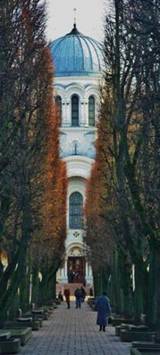 |
KAUNAS IN FOCUS Kaunas, Lithuania's second largest city and former capital, is receiving much attention in VilNews now as 2012 is coming to an end. We focus on history, business, culture, innovation, tourism and more. We would also like to hear from you who have you personal Kaunas... Send us your Kaunas story! |
Kaunas – the feel of
traditional Lithuania
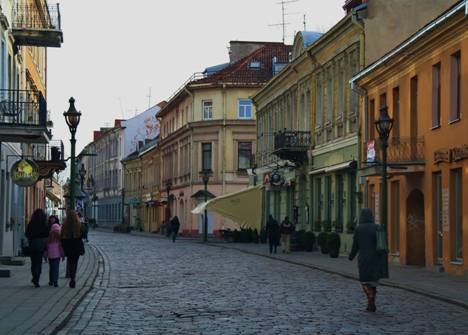
Vilniaus gatve (above), the Kaunas Old Town’s main street, was back in the 13th century a highway linking the city with Vilnius.
Read more at http://en.wikipedia.org/wiki/Centras_(Kaunas)
Text and photos: Aage Myhre
It was in 1408 that Lithuania’s Grand Duke Vytautas the Great granted Magdeburg rights to Kaunas, and after that point in time this settlement at the confluence of the Neris and Nemunas rivers began to grow as an important centre and main port for Lithuanian trade with Western Europe.
The original settlement, where today’s Kaunas old town is located, was first mentioned by the chroniclers in 1361, and it was here in the old town the first brick castle was built by the end of the 14th century, to defend Kaunas from the Crusaders’ attacks.
- Bookmark :
- Digg
- del.icio.us
- Stumbleupon
- Redit it
- Posted by - (0) Comment
Independent Lithuania
(1918–1940)

After Vilnius was occupied by the Russian Bolsheviks in 1919, the government of the Republic of Lithuania established its main base in Kaunas. Later, when the capital Vilnius was forcibly annexed by Poland, Kaunas became the temporary capital of Lithuania,a position it held until 28 October 1939, when the Red Army handed Vilnius back to Lithuania. Here a picture from the Presidential Palace of the Republic of Lithuania in Kaunas, around 1930
At the end of World War I the Germans allowed the Vilnius Conference (18–22 September 1917) to convene (elections for a formal representative assembly were not permitted), demanding that Lithuanians declare loyalty to Germany and agree to an annexation. The Conference instead announced basic principles of a limited in territorial scope, but independent ethnic Lithuanian state, with cultural rights for the minorities; accordingly, the publication of the Conference's resolution was not allowed. The Conference elected a 20-member Council of Lithuania (Taryba) and empowered it to act as the executive authority of the Lithuanian people. The Council declared on 11 December Lithuanian independence as a German protectorate, and then adopted the outright Act of Independence of Lithuania on 16 February 1918. It proclaimed Lithuania as an independent republic, organized according to democratic principles.
- Bookmark :
- Digg
- del.icio.us
- Stumbleupon
- Redit it
The interwar presidents
- Posted by - (0) Comment
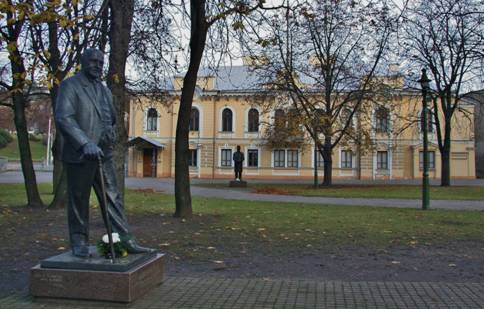
Statutes of the three interwar presidents are placed in the park in front of the Historical Presidential Palace in Kaunas. Picture: Statues of Aleksandras Stulginskis (front) and Antanas Smetona.
Photo: Aage Myhre
After Lithuania re-won its freedom in 1918, a Polish military invasion led to an annexation of eastern Lithuania (including the capital city Vilnius) to Poland. This was never recognized and Lithuania remained at a state of war with Poland, with the new government city Kaunas officially designated the “Temporary capital”. “We won’t calm down without Vilnius” became a popular slogan and organizations like the “Union for the Liberation of Vilnius” sprung up with the Lithuanian-Polish territorial dispute becoming one of the keystones of interwar Lithuania’s policy.
- Bookmark :
- Digg
- del.icio.us
- Stumbleupon
- Redit it
VilNews e-magazine is published in Vilnius, Lithuania. Editor-in-Chief: Mr. Aage Myhre. Inquires to the editors: editor@VilNews.com.
Code of Ethics: See Section 2 – about VilNews. VilNews is not responsible for content on external links/web pages.
HOW TO ADVERTISE IN VILNEWS.
All content is copyrighted © 2011. UAB ‘VilNews’.

 Click on the buttons to open and read each of VilNews' 18 sub-sections
Click on the buttons to open and read each of VilNews' 18 sub-sections 




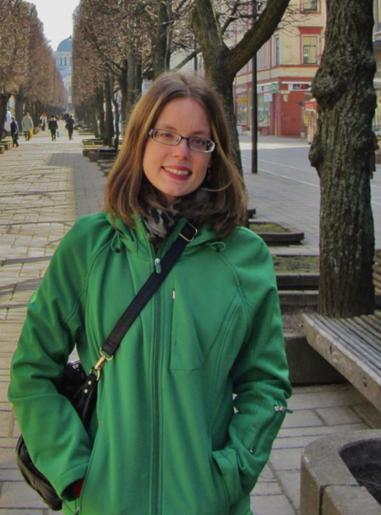

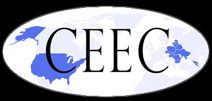








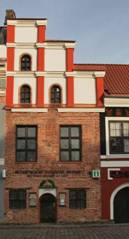

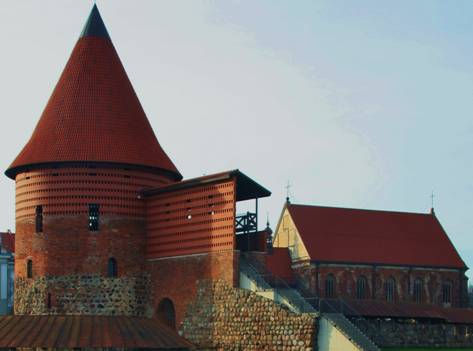











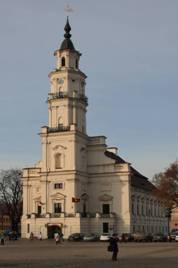

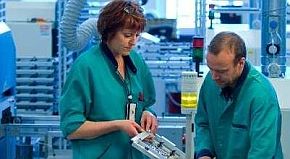
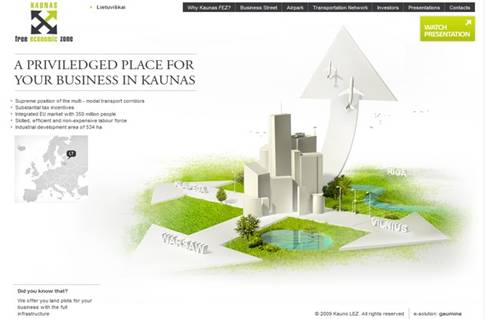










.jpg)



